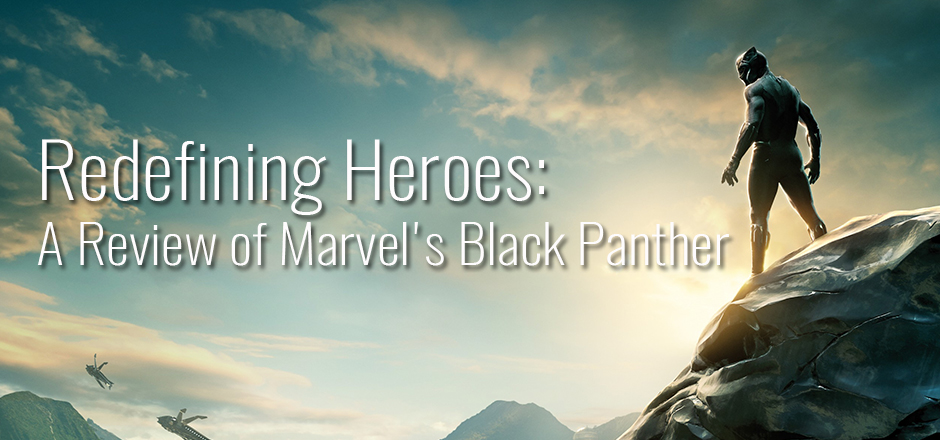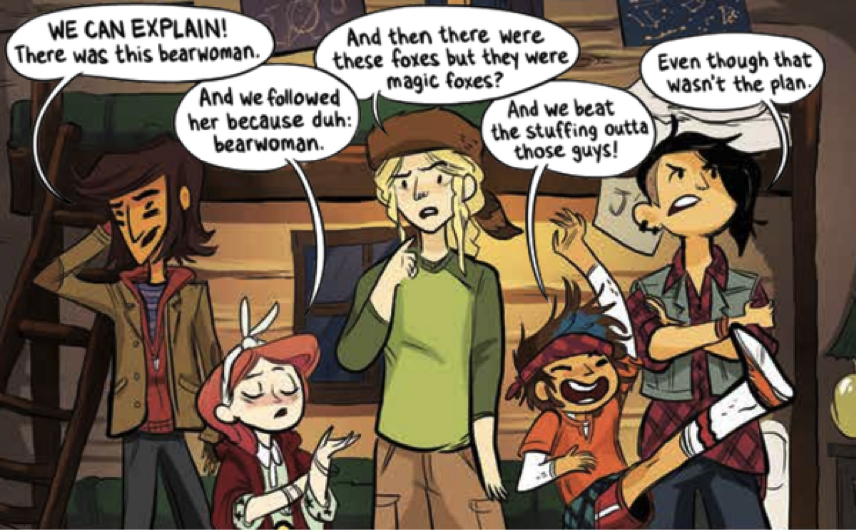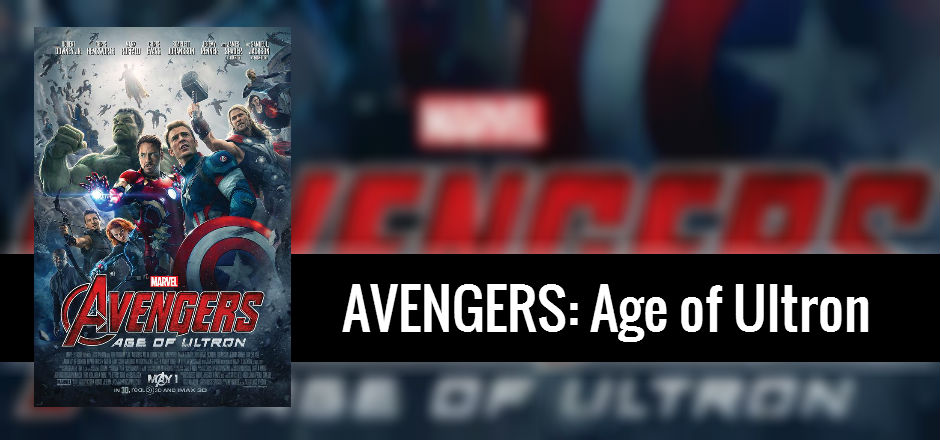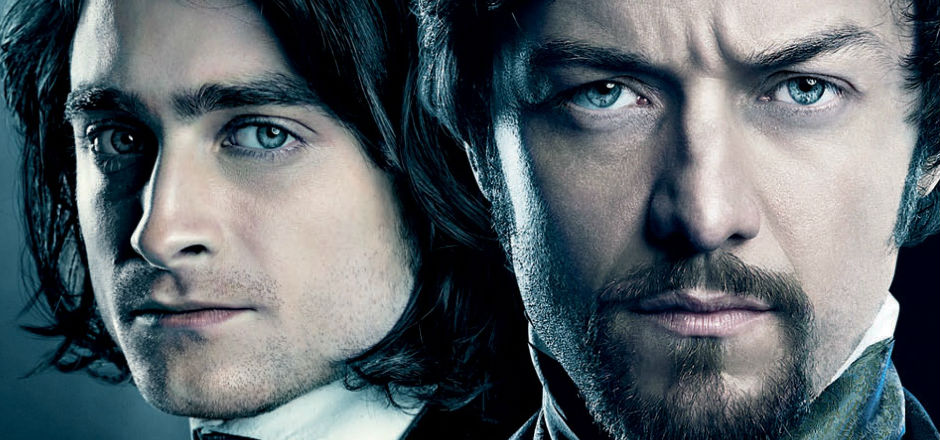The movie wasn’t five minutes in before I knew I needed to see it again immediately. Marvel’s Black Panther has been long awaited for several reasons, the foremost being the formidable and talented all-black cast. Yeah, I’m sure by now we’ve all see the “Tolkien white guys” meme, but Black Panther’s hallmark lies not only in the diversity of its cast, but in its variety of representation, breathtaking visuals, attention to detail, and emotional resonance. The film follows T’Challa (Chadwick Boseman), the titular Black Panther, as he prepares to be crowned king of Wakanda following his father’s death. When word reaches the kingdom of an old foe selling stolen vibranium, T’Challa finds himself in a position that puts Wakanda and the world in danger.
From the moment the film began, I felt myself pulled into Wakanda, into their history and their reasons for keeping the outside world at bay. Mallory Yu’s NPR article discusses and describes costume designer Ruth Carter’s inspiration for the film. Pulling from different African cultures and applying sacred geometry to the rich fabrics and even the Black Panther’s suit, Cater sought to “evoke an African country that had never been colonized, one that looked toward the future but was based on a real past.”
There are some amazing articles about the importance of Black Panther written by people of color, including the complex.com’s ‘Black Panther is the Superhero Film Every Kid of Color Needs to See’, Jamil Smith’s Time article, ‘The Revolutionary Power of Black Panther’, and NPR’s audio interview with Danai Gurira (Okoye). The audio interview is also transcribed in the article for accessibility. If you, dear reader, have more reviews or articles written by Black authors, please leave links in the comments below!
Since this is Girls in Capes, I want to focus on the incredibly badass women of Wakanda. As a whole, Black Panther is wonderfully feminist—black feminist—placing women in not only positions of power, as the Dora Milaje (based on the Dahomey women warriors) but also as peacemakers, scientists, rulers, spies, and heads of tribes. You can read more about the Dora Milaje in this excellent piece written for The Glow Up by Maiysha Kai. These women encompass strength, compassion, wit, and humor, and are not once put down as ‘weak’ for being multifaceted. In fact, Black Panther has done more for women in comic movies than any other film (surpassing even Wonder Woman, which, while also feminist and featured a strong, multifaceted female hero, was not inclusive in its feminism).
We all know the movie is technically about T’Challa, now King of Wakanda, but it’s T’Challa’s little sister, Shuri (Letitia Wright), who steals the show every time she’s on screen, from millennial flare to scathing wit and snappy one-liners. She’s amazing. Shuri’s responsible for Wakanda’s high technological advancements, including the rail and transit systems, medical procedures, and designing her brother’s fancy new suit. I love the idea of a teenaged African girl being the tech genius for an entire country. In the quietly released prequel comic, “Marvel’s Avengers: Infinity War Prelude #1,” Shuri is also responsible for deprogramming Bucky Barnes, aka The Winter Soldier, aka, my favorite. (Related: I swear, if Infinity War is any less than two and a half hours of Shuri straight up trolling Tony Stark, I’m going to be very upset.)
Nakia (Lupita Nyong’o) is one of women (along with Angela Bassett’s Ramonda) I wish had gotten more screen time. She’s an undercover spy, a War Dog, an activist, and firmly believes that Wakanda should be doing more to help the world. Though technically the love interest (formerly T’Challa’s girlfriend), Nakia commands her own autonomy and refuses to back down from the mission to bring down Ulysses Klaue (Andy Serkis), a man who breached Wakanda’s defenses and is now attempting to sell stolen vibranium. Her storyline, blessedly, is not about romancing the new king; it’s about saving her country. Turns out you can do both, since of course there’s a romance, and it’s handled so well, including the first non-awkward kiss in the entire MCU.
Let’s be honest here: I want to see Black Panther again mostly so I can fangirl over Okoye, the Dora Milaje general and T’Challa’s head guard. She is fierce, she is strong, but she is also funny, loyal, and loving. Her teasing T’Challa is one of the best parts of the movie. Her duty as general is to protect the throne and whomever sits upon it, but she sees her leaders, her community, as people as well.
Of course, no movie is entirely perfect, and while one or two things may have raised my eyebrow, nothing struck me quite as senseless as Okoye’s straightwashing. After an initial set report hinted at a romance between Okoye and Ayo (the latter appears in multiple World of Wakanda comics in a committed relationship with another woman in the Dora Milaje), Marvel announced in April last year that these characters would not have a romance in the film. They cut the previously filmed scene in which Okoye flirted with Ayo, but went a step further by giving her a romance with W’Kabi (Daniel Kaluuya), another member of the Border Tribe and head of Wakandan security.
Okay, a flirting scene is nothing, not compared with actual on-screen moments between love interests. What makes me cringe more is the complete lack of, you know, romance between Okoye and W’Kabi. They say three lines to each other the whole movie. The “romance” has no relevance to the storyline. Marvel tacked it on so you would know she wasn’t queer. In my mind, it would have been better to not have a relationship at all, to let Okoye be single.
In “Don’t Play with Our Emotions: Black Panther and Queer Representation,” Briana Lawrence states that at least people are talking about queer rep for women of color:
“But if there’s something I want you to take away from this: it’s that we’re actually discussing queer women of color making a big screen appearance, and we’re being taken seriously. This scene has started something, and if Coogler puts as much effort into artfully portraying queerness as he did blackness, the future movies in the series will be the most intersectional thing in any movie-verse, not just Marvel’s.”
Not only was Black Panther astonishing for the sheer amount and variety of strong women, the writers didn’t shy away from allowing T’Challa and Killmonger to experience and display emotion. Both are young men, both have lost their fathers. In T’Challa’s case, he’s spent his life learning to be king at his father’s side, but now has to decide how to rule on his own. Killmonger grew up in the projects of Oakland, CA and heard fairytales of Wakanda as a child, had promises from his father that he’d take him there. Wakanda’s entire history is based on hiding from the world, and I can’t imagine how it feels to learn there’s a history for your people untouched by colonization, especially surrounded by the inequality and injustice he saw all around him in the States. Killmonger’s anger and determination to claim that history as his own . . . doesn’t justify his means, but definitely makes them understandable.
On the other side, we have T’Challa’s concerns about becoming king without his father. In the two interactions he has with his father’s spirit, T’Challa is visibly upset, not ready to let go and step into his rightful place, and it’s clear he loves and misses T’Chaka. The second meeting is nothing but disappointment and anger, followed by T’Challa swearing to do better as king. The directors show him crying, embracing his father, and exhibiting behavior and actions men “aren’t supposed to have.” I’m glad the writers didn’t shy away from allowing both men to express their emotions. I know we jokes about loving “sad boys,” but it’s another step in breaking down toxic masculinity when we see it, on the big screen.
Please just go see this film. It’s breathtaking, it’s funny, it’s heartbreaking, action-packed, and it houses a lot of messages people need today, not only regarding race, but redefining what kind of men and women can be portrayed in big-budget action movies. There’s a lot to unpack in Black Panther, and I’m certainly not qualified to be the one to do it. It’s about coming together, taking care of each other, and if Black Panther’s $220-million dollar opening weekend and the sold-out showings are any hint at all, then this film will one of the highest-grossing superhero movies of all time. And it deserves that place.
If you can find a showing that hasn’t sold out, I highly recommend seeing Black Panther on the big screen at least once. If you’re into comics and need another fix, right now the digital version of Black Panther: A Nation Under Our Feet Vol. 1 is free on Amazon. Sadly, I don’t know how long that promotion is running, so snag it while you can. Acclaimed writer Ta-Nehisi Coates is currently helming a stellar Black Panther comics run, and the aforementioned World of Wakanda, written by Roxane Gay and Yona Harvey, is also not to be missed.
As always, stay around because we all know that Marvel films don’t end after the credits start rolling and there are two post-credits scene or you’ll be sad when all your friends spoil them for you.






